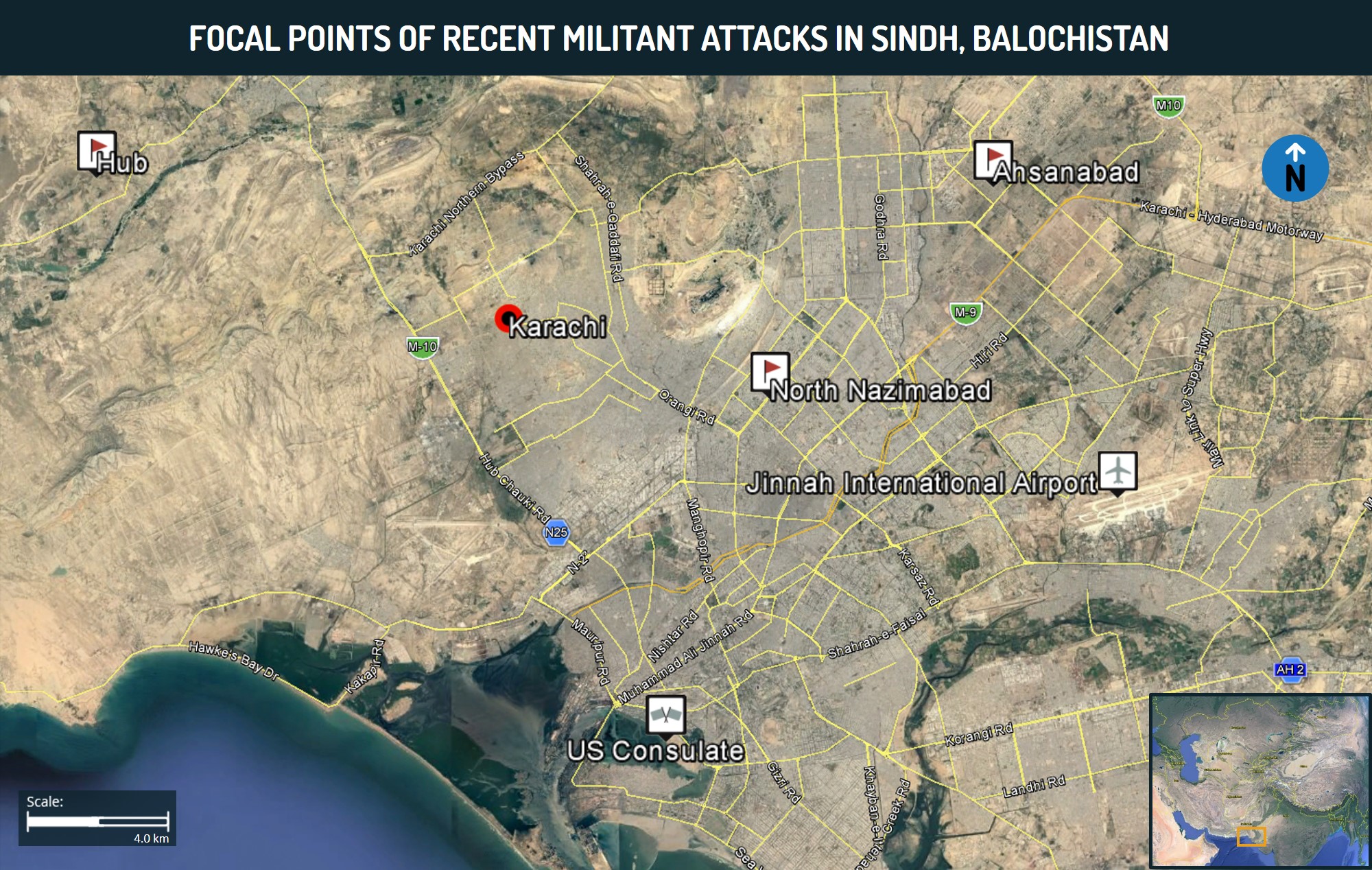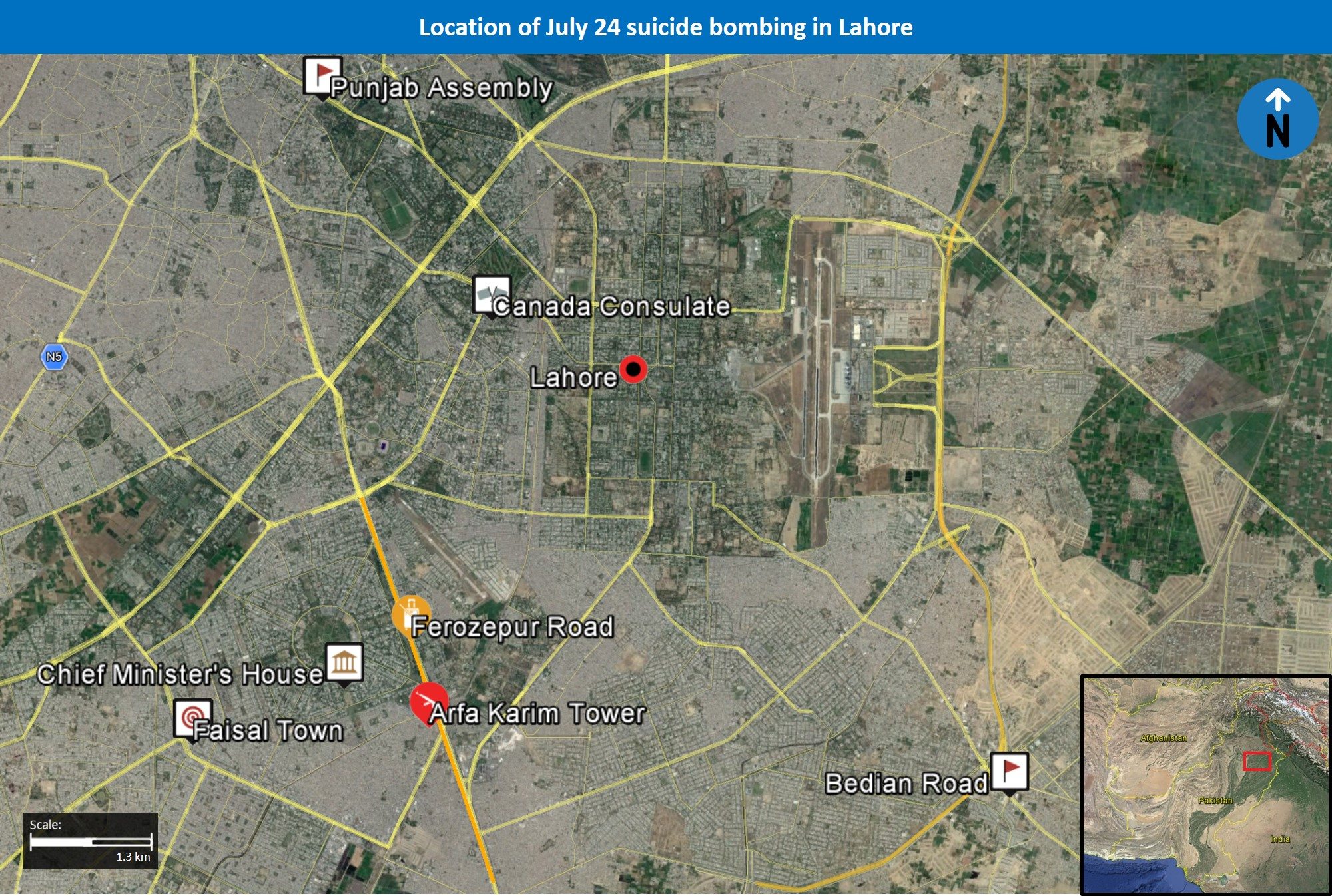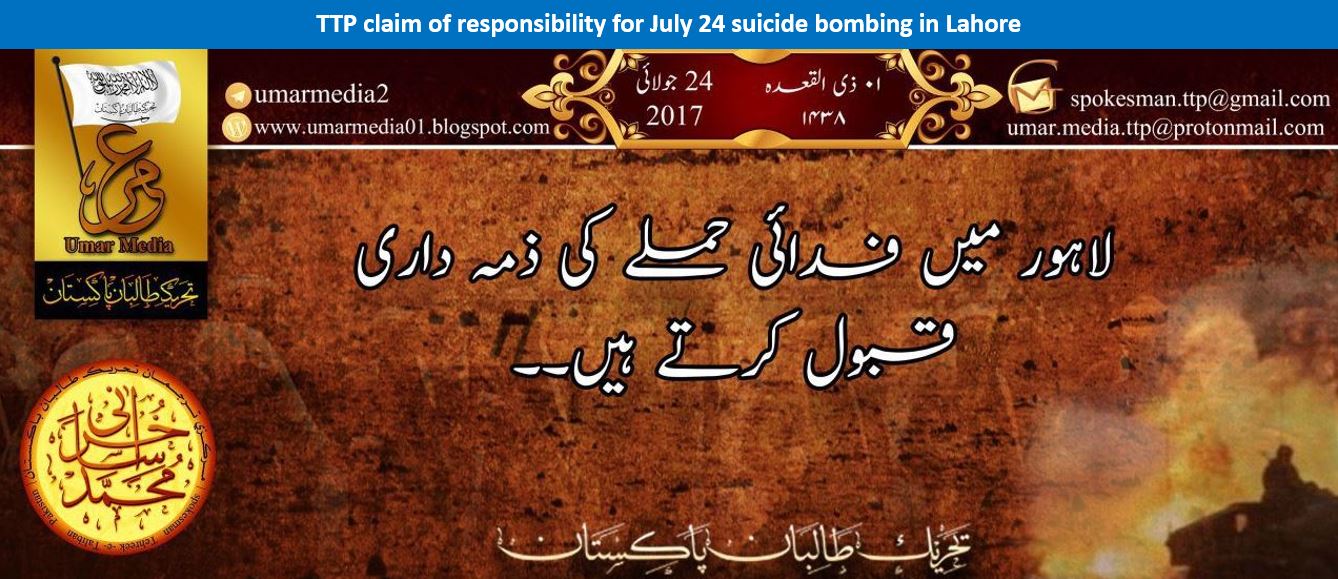Please be advised
On October 3, a police sub-inspector was killed in Ahsanabad area of Karachi by two unidentified assailants riding a motorcycle. The attackers reportedly opened indiscriminate fire, before fleeing the scene. Hizbul Ahrar (HuA), a splinter group from the Tehreek-e-Taliban Pakistan Jamaat-ul-Ahrar (TTP-JA), claimed the attack on social media. Authorities have yet to confirm the identity of the assailants, as well as the veracity of the claim.
On September 20, both the HuA and the TTP-Hafiz faction claimed a bomb blast against security forces in Spinwam, in North Waziristan, Khyber Pakhtunkhwa (KP) Province. The TTP and HuA both claimed an attack in Mastung on August 19, which was one of their earliest conflicting claims.
On June 2, the HuA claimed an attack against a paramilitary checkpost in Hub, Lasbela District of Balochistan, which lies at the border of Karachi, Sindh Province.
In May, the HuA claimed a suicide attack against a bus in Attock in Punjab Province, following which the Counter Terrorism Department (CDT) arrested five militant operatives on September 17 planning to carry an attack in Rawalpindi.
On January 12, the TTP claimed responsibility for the killing of a policeman in North Nazimabad area of Karachi.
Assessments & Forecast
The latest claim by the HuA is highly notable, given that it is the first such claim by the group in Karachi and in Sindh Province. The group has typically confined its operations to northern and western Pakistan, in provinces such as KP, Balochistan, and the former Federally Administered Tribal Areas (FATA), in which the outfit has increased its operations in recent weeks. The latest attack in Karachi, combined with the May attack and the arrest of five of its operatives in Punjab Province, is indicative of the group’s attempt to increase its sphere of operations and to push for a presence in major civilian centers such in Karachi and Rawalpindi.
Over the recent weeks, the HuA also appear to be increasingly challenging the factions of its former patron, TTP, by claiming attacks in TTP-held territories and by challenging the group’s claims. This was witnessed in the Spinwam attack on September 20, which occurred close to Data Khel, an area predominantly controlled by TTP factions. While Karachi has frequently witnessed attacks by TTP and its affiliates against law enforcement, the recent HuA attack of October 3 may be another indicator of the growing competition between the groups in a new sphere. It is also likely that HuA’s operations in Sindh and Punjab are aided by the defections of TTP-JA personnel to the new breakaway group.
The modus operandi used is notable given that HuA methods that primarily use suicide bombings or IED attack. Motorcycle-borne shooter attacks are more characteristic of Karachi-based militants and criminal elements, which may indicate potential cooperation between these elements and the HuA. Should HuA be adding newer modus operandi to their current tactics, there is a threat that such attacks may be replicated by its cells in other parts of the country. Additionally, while the group has previously stated that all attacks will focus on government targets over civilian, the indiscriminate nature of their plot execution increases the risk of collateral damage, as the attacks have taken place in civilian-populated areas. FORECAST: Over the coming months, the authorities are likely to conduct operations in Sindh Province and along the border areas with Balochistan, in attempt to dismantle potential HuA cells and prevent infiltrations from Balochistan and the Afghan border regions into Sindh.
Recommendations
We advise against all nonessential travel to Pakistan given the heightened threat of militant attacks, criminality, kidnappings and sectarian tensions throughout the country.
Throughout Pakistan, we advise [as part of our security consulting services] minimizing non-essential movement given the daily nationwide threat of militant attacks and violent criminality.
As a general precaution, maintain heightened vigilance in the vicinity of security detachments, government buildings, public areas, diplomatic installations, news stations, military bases, restaurants, high-value soft targets like schools, shopping centers, and religious centers including mosques as they remain potential targets for militant attacks.
Those operating or residing in Sindh Province are advised to maintain vigilance in light of the recent HuA plot and the potential for growing competition between militant groups in Karachi, which may result in an increase in plots over the near term.



